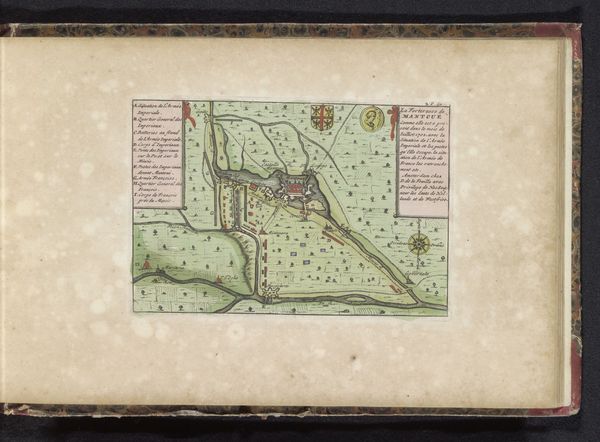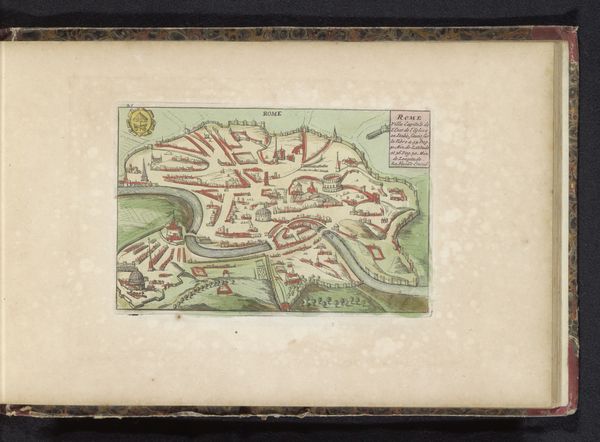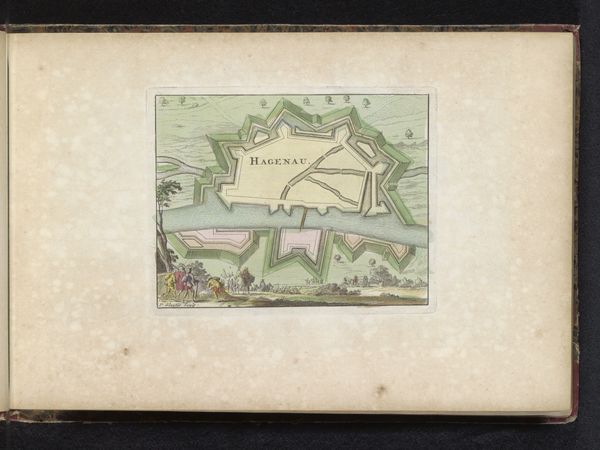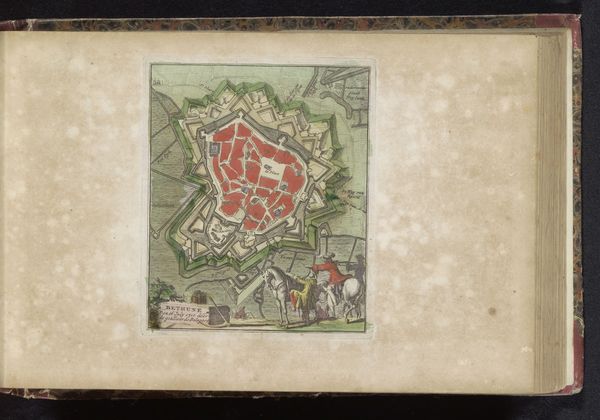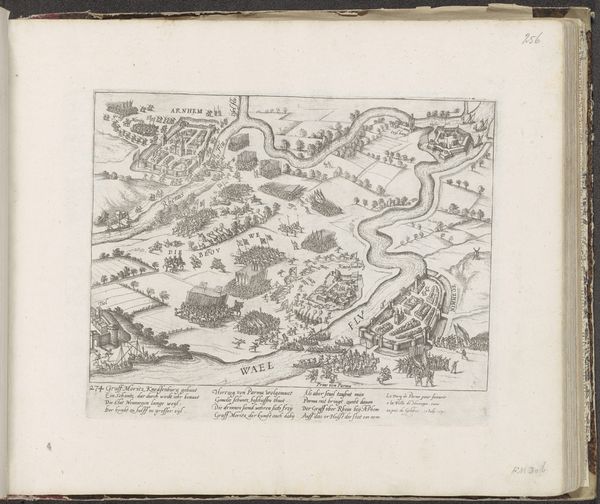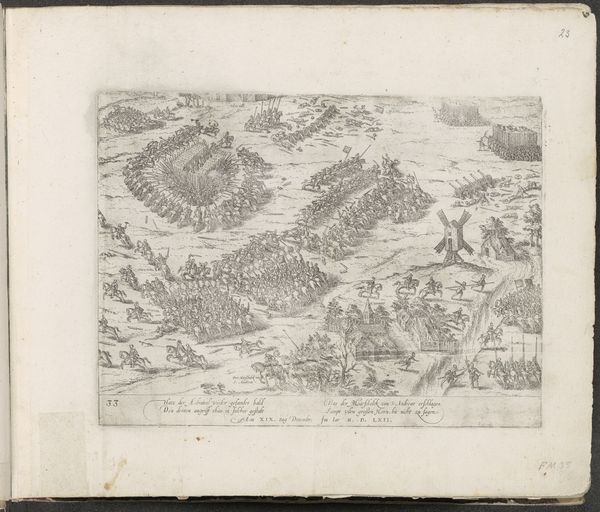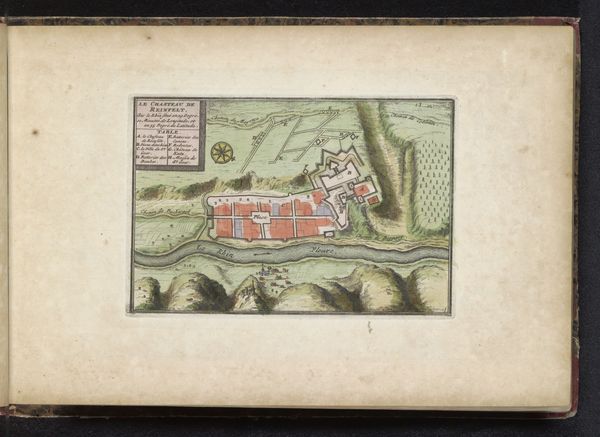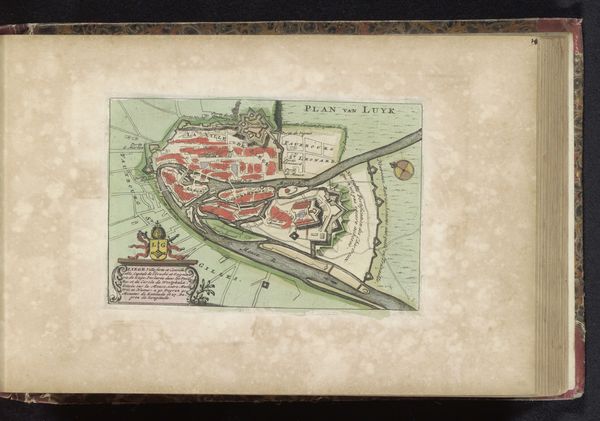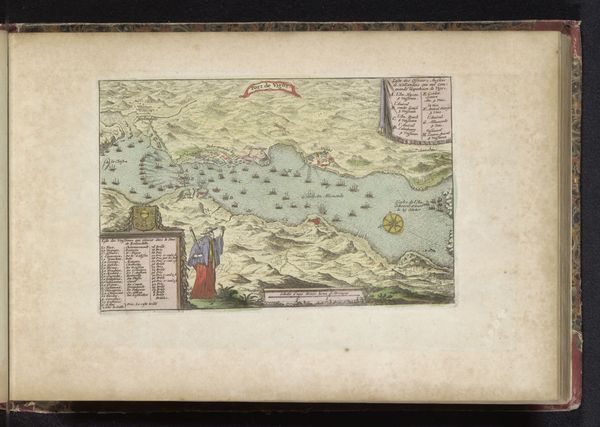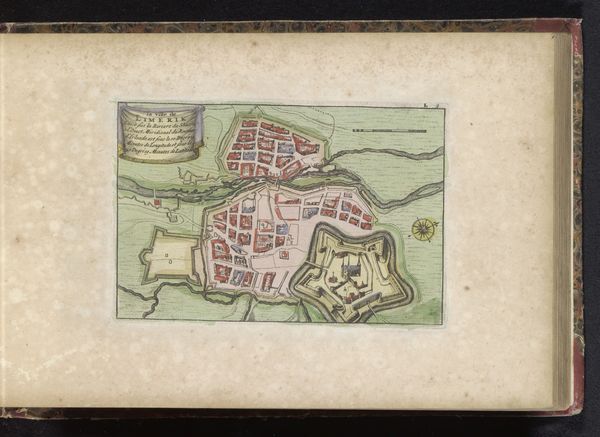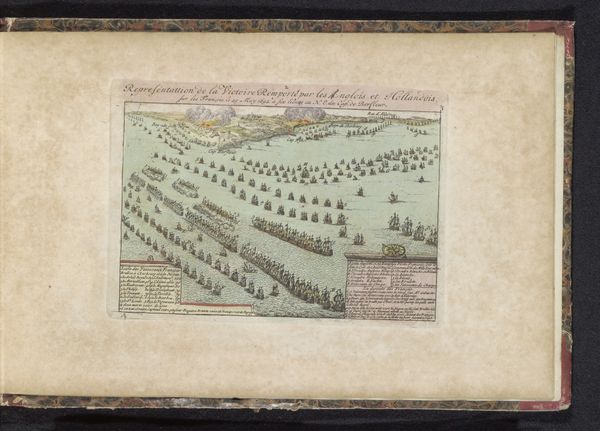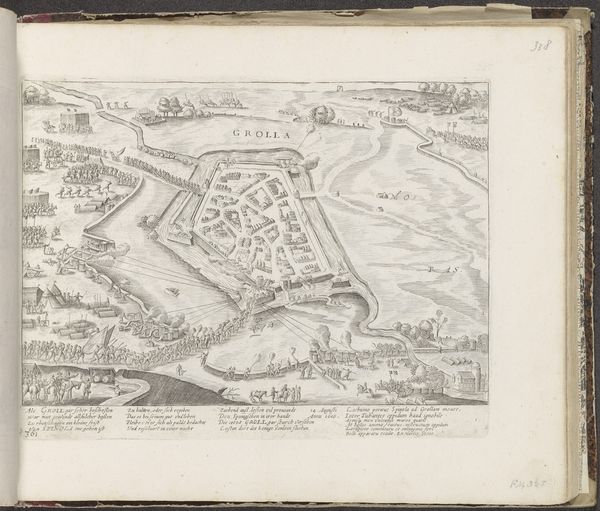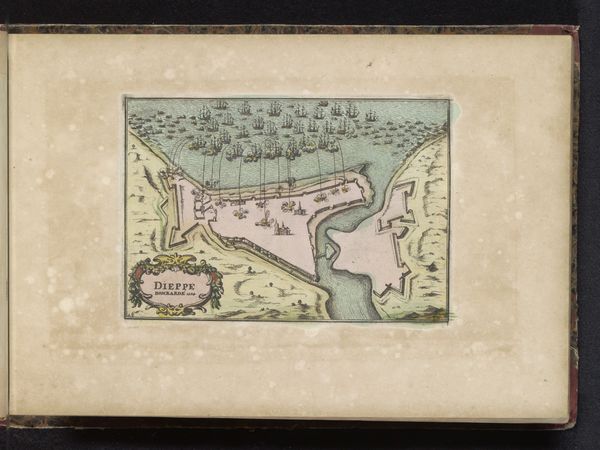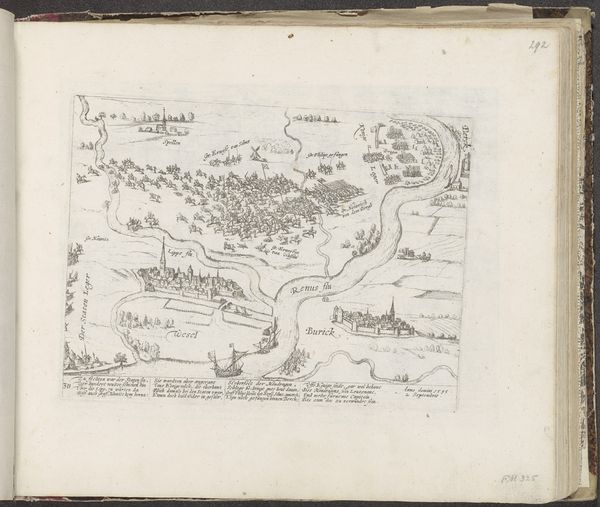
drawing, coloured-pencil, print, paper
#
drawing
#
coloured-pencil
# print
#
landscape
#
paper
#
coloured pencil
#
cityscape
#
genre-painting
#
watercolor
Dimensions: height 87 mm, width 158 mm
Copyright: Rijks Museum: Open Domain
Editor: This is a 1735 print in colored pencil called "Beschieting van Limbourg door de Geallieerden, 1703," attributed to an anonymous artist. It seems to depict a town under siege, or perhaps just after a battle. The colors are quite muted, lending a somber air. What do you make of this scene? Curator: It’s a fascinating piece, especially considering the context of its creation, more than thirty years after the depicted event. Do you notice how the scene is rendered not as a romantic battle, but almost as a map, a dispassionate survey? Consider the act of remembrance here: What purpose does this visual record serve? Editor: I hadn't thought of it that way, as a map. It almost feels like a historical record or document, but with these delicate, almost whimsical, colors. Curator: Exactly. The 'whimsical' colors serve a mnemonic function; they imprint the image, making it emotionally accessible for contemporaries and successive generations. This kind of visual shorthand builds a shared understanding. Are you familiar with other symbolic maps that shaped a nation’s or culture's memory? Editor: Not off the top of my head, but that makes me want to research that further. I guess I was initially drawn to the quaintness of it, but now I see the deeper implications of its imagery. Thanks! Curator: It is a testament to how even seemingly straightforward images can become powerful cultural artifacts by embodying complex historical and cultural meanings. An apt lesson for us both!
Comments
No comments
Be the first to comment and join the conversation on the ultimate creative platform.
